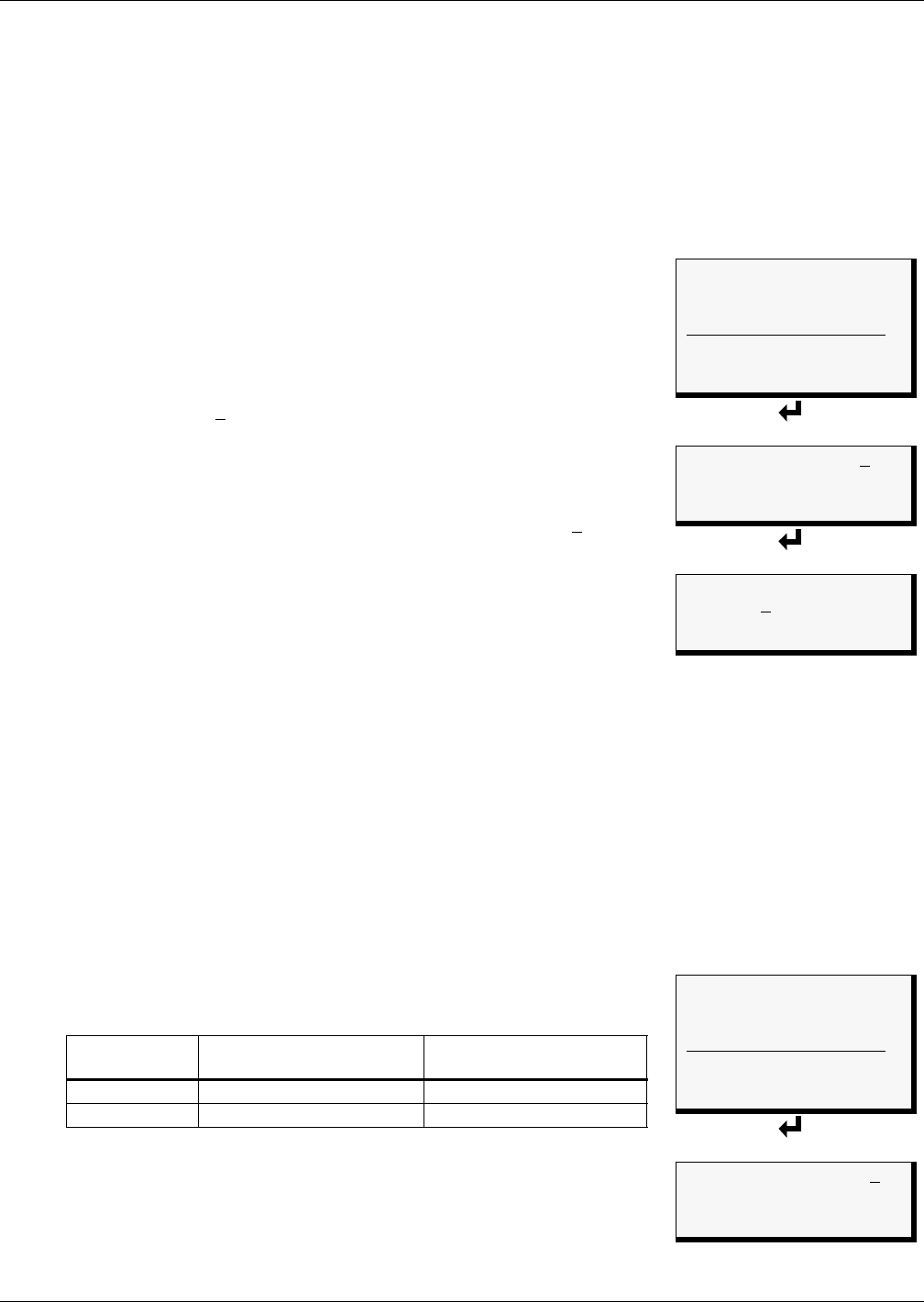
System and Control Options
70
7.10.2 Turn Standby Testing On or Off
Standby testing permits scheduling an automatic operational check of devices in Standby mode.
When this feature is activated (ON), the AC8 tests all devices in Standby mode by putting each device
in operating mode for a designated time. If an operating unit is designated as disabled on alarm, the
unit is turned off during standby testing, then turned on when the test ends.
You may specify the time of day the testing begins, the duration of the test and the interval between
tests. Standby testing is OFF (deactivated) by default.
To change the standby testing settings:
1. From the Setup System Operation Menu, use the arrows
↑↓ to
choose Standby Testing, then press Enter ↵.
2. In the Activate / Deactivate screen, use the arrows
↑↓ to choose:
a. Choose ON to activate standby testing, then press Enter ↵ and
proceed to Step 3.
a. Choose OFF to deactivate the feature, then press Enter ↵ and
return to the previous screen.
3. Select the desired interval for how frequently testing should occur
in the Every 0
3 Days field. The default is 3 days; valid entries
range from 0 to 99 days.
• For each digit, use the arrows
↑↓ to choose a number from 0 to
9, then press Enter ↵ to advance to the next digit.
• When finished, press Enter ↵ to configure the time of day.
4. Specify the time of day the test should begin in the At 00
:00 field.
The format is HH:MM for hours and minutes.
• Use the arrows
↑↓ to choose from available entries for hours
(00-23), then press Enter ↵ to advance to minutes.
• Use the arrows
↑↓ to select minutes (00-59).
• When finished, press Enter ↵ again.
5. Specify the duration of the test in minutes—the length of time the
standby units will be turned On—in the For 10 Min field. Use the arrows
↑↓ to choose a number
from 0 to 59 minutes. The default is 10 minutes.
6. When finished, press Enter ↵.
7.10.3 Specify Failed Standby Response
The AC8’s Failed Standby feature determines what happens when an operating device fails and a
standby device then becomes an operating unit. A subsequent alarm in the newly operating unit (pre-
viously the standby device) results in either restarting the previously operating device that was
alarmed or not. This feature specifies whether each device remains in its current state or returns to
its previous state of operation.
When this feature is activated (Y), each device returns to its previous state, as Table 29 shows. The
newly enabled Standby device is disabled; the previously operating device returns to Operating mode.
The default setting is N (deactivated), meaning that each device
remains in its current state: the Standby device remains enabled and
the previously operating unit remains disabled.
To change the Failed Standby settings:
• From the Setup System Operation Menu, use the arrows
↑↓ to
choose Failed Standby, then press Enter ↵.
• In the Change Failed Standby screen, press use the arrows
↑↓ to
choose Y to activate or N to deactivate the feature.
• Press Enter ↵.
Table 29 Failed Standby response
Failed Standby
Setting
Previous Standby Device
(alarm after being enabled)
Previously Operating
Device
Activated (Y) Disabled Returns to Operating mode
Deactivated (N) Remains enabled Remains disabled
Setup Operation Menu
AUTO SEQUENCING OFF
> STANDBY TESTING OFF
FAILED STANDBY N
↑↓=NEXT ↵=SELECT
HOLD DELAY : 10:00
RESTART : 00:06
STAGING : OFF
Activate / Deactivate
STANDBY TESTING OFF
↑↓=NEXT
↵=EDIT
Change Standby Testing
> STANDBY TESTING ON
EVERY 0
3 DAYS
AT 00:00 FOR 10 MIN
↑↓=NEXT
↵=EDIT
Setup Operation Menu
AUTO SEQUENCING OFF
STANDBY TESTING OFF
> FAILED STANDBY N
↑↓=NEXT ↵=SELECT
HOLD DELAY : 10:00
RESTART : 00:06
STAGING : OFF
Change Failed Standby
FAILED STANDBY N
↑↓=NEXT ↵=END
